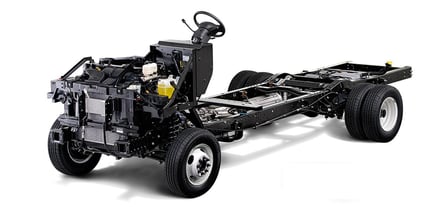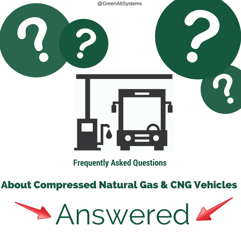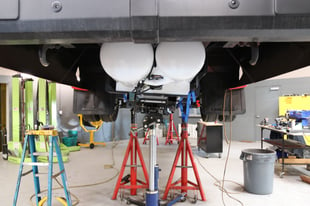Four Ways to Ease the Transition into Alternative Fuels
 Fleet managers around the country - and around the world - are increasingly considering alternative fuel conversion options for their vehicles. The benefits are many, ranging from decreased operating costs to the real environmental benefits, while there are relatively few drawbacks... except for that initial conversion period.
Fleet managers around the country - and around the world - are increasingly considering alternative fuel conversion options for their vehicles. The benefits are many, ranging from decreased operating costs to the real environmental benefits, while there are relatively few drawbacks... except for that initial conversion period.
It's easy for fleet managers to think, "Well, alternative fuels sound good in theory, but it's just too much trouble." However, with so many alternative fuel conversion options out there such as propane or compressed natural gas, there's almost always a good fit for any fleet it's just a matter of finding it.
4 Steps Towards Making Alternative Fuel Conversions Viable
 1. Do research on fuel types and local fuel sources.
1. Do research on fuel types and local fuel sources.
There's no "magic bullet" in alternative fuels because a lot of it will depend on which fuel types are available and cost-effective in your area. While there's a bit of legwork involved in researching alternative fuel availability, much of the time, you'll find that this piece of information, by itself will be the deciding factor.
2. Consider direct suppliers.
Admittedly, one issue with
alternative fuels is that third-party fuel stations aren't as common as we'd like. That situation is slowly getting
better, but in the meantime, it often makes sense to simply set up on-site fuel depots. Once you've identified the fuel type which will be cheapest in your area, contact suppliers to find out about

wholesale rates.
Check out some Alternative Fuel Data Center it has some very helpful information to keep you updated about where you can fuel up your alternative fuel vehicle.
3. Decide on new vehicles vs. converting old ones.The next step is to look into your choices for the fleet itself. Buying new vehicles is certainly an option, but it's an expensive choice unless you're already looking into a major fleet to buy. In many cases, an aftermarket alt-fuel conversion is the better option. It's far less costly and if you work with conversion shops that are industry-certified, you can even maintain the warranty on your vehicle on special occasions.
4. Put together the budget and make it happen.
At this point, you have all three pieces in place: which fuel to use, the source of that fuel, and how to obtain the vehicles that use it. Putting together a budget that includes future-savings projections can make it far easier to help management understand.
Have More Questions About Alt-Fuel Conversion?
Green Alternative Systems has the experience and the industry contacts to make alt-fuel conversions easy. Contact us for more information!



